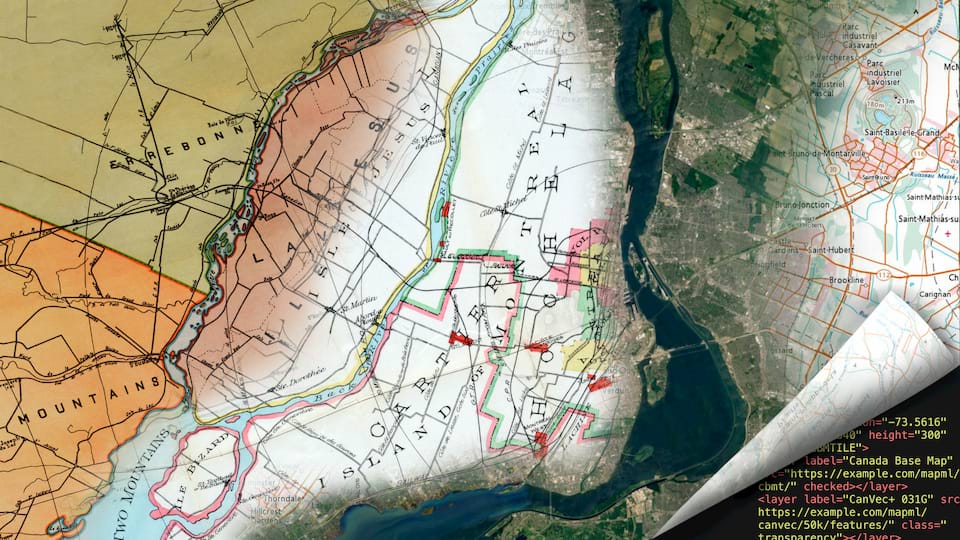Schedule
-
Introduction presentations 30 minutes
- Welcome
- The workshop program committee
- Talks
- Why maps for the web
-
State of Web map widgets today presentations 1 hour
- Talks
- Use Cases
- Geomoose
-
State of map data & server standards today presentations 1 hour
- Talks
- OGC APIs for web use
- pygeoapi
- Connection of the MapML initiative with OGC standards such as the new OGC API Tiles candidate or the old WMS
- Limitations to use of OGC services
-
Stakeholders: Government geospatial data providers & the web panel 1 hour
- Panelists
- Emilio López Romero, National Centre of Geographic Information (Spain)
- Cameron Wilson, Canadian Spatial Data Infrastructure
- Don Sullivan, NASA
- Sébastien Durand, Canadian Federal Geospatial Platform
- Moderator
- Peter Rushforth
- Discussion
- Web mapping needs for Government Geospatial data providers, on Discourse
-
Native map viewer for the Web platform presentations 1 hour
- Talks
- Extending the Web: Maps, The Commons, and Pie
- The MapML Proposal - Part One
- Bocoup's Review of the MapML Proposal
- Quad Tree Composite Tiling and the standardization of tiling; Decentralized Web Mapping
-
Internationalization and Security presentations 30 minutes
- Talks
- Multilingual text rendering
- Fuzzy Geolocation
-
Worldwide Web Maps: Challenges in the global context panel 30 minutes
- Panelists
- Brandon Liu, Protomaps
- Siva Pidaparthi, ESRI
- Nicolas Rafael Palomino
- Thijs Brentjens, Geonovum
- Moderator
- Doug Schepers
- Discussion
- Worldwide Web Maps: Challenges in the global context, on Discourse
-
Extending GeoJSON for Web Applications breakout
- Facilitator
- Gethin Rees
- Talks
- Expressing GeoJSON as JSON-LD 1.1
- GeoJSON-T: Adding time to the GeoJSON standard
- Discussion
- Extending GeoJSON for Web Applications, on Discourse
-
Creating accessible Web map widgets presentations 30 minutes
- Talks
- UI patterns in existing web map widgets
- Introduction to Digital Nonvisual Maps
-
Building Cross-Sensory Maps Using Audiom breakout 60 minutes
- Facilitator
- Brandon Biggs
- Discussion
- Digital Nonvisual Maps, on Discourse
-
The <map> and <layer> speculative polyfill (MapML) breakout
- Facilitator
- Peter Rushforth
- Talks
- The MapML Proposal - Part Two
-
Web Maps for Real-World Accessibility presentations 30 minutes
- Talks
- Physical accessibility data in maps
- Indoor maps
-
Web Maps for Cognitive Accessibility panel 30 minutes
- Panelists
- Lisa Seeman
- David Fazio
- John Kirkwood
- John Rochford
- Moderator
- Amelia Bellamy-Royds
- Discussion
- Cognitive Accessibility of Web Maps, on Discourse
- Background Reading
- COGA Issue Paper on Indoor Navigation / Wayfinding
- Collection of Wayfinding links & resources
-
Building better map data services/formats for web use presentations 60 minutes
- Talks
- Advanced Analytics Software Project for Geospatial Data
- Embedding rendering & behavior configuration in map data
- The History of Meteorology and Cartography
- Web GIS application for Indian Prime Minister's Rural Road Programme
-
Creating accessible Web map widgets presentations 20 minutes
- Talks
- Towards Accessible Annotations for a Native Map Viewer for the Web Platform
-
Creating accessible Web map widgets panel 30 minutes
- Panelists
- : Brandon Biggs, Audiom / Smith-Kettlewell Eye Research Institute position statement
- Doug Schepers, Fizz Studio
- Tony Stockman, Queen Mary University
- Nicholas Giudice, University of Maine
- Moderator
- Gobe Hobona
- Discussion
- Creating accessible web map widgets, on Discourse
-
Advances in 3D Map Display presentations 30 minutes
- Talks
- GeoPose: From point-of-interest to maps-of-objects
-
Maps and augmented reality panel 30 minutes
- Panelists
- Christine Perey, OGC GeoPose working group
- Jan-Erik Vinje, Open AR Cloud Association
- Ada Rose Canon, Samsung
- Patrick Cozzi, Cesium Inc.
- Thomas Logan
- Moderator
- Ryan Ahola
- Discussion
- Maps & Augmented Reality, on Discourse
-
Maps of Objects: GeoPose for Web maps breakout
-
Advanced web graphics for mapping presentations 60 minutes
- Talks
- Map adventures in weird web standards - gyroscopes, texture cubes, and mutants
- Map Compositions format
- MapML implementations in MapServer, GDAL and OGR
- OffScreenCanvas for rendering performance
- Dynamic and Observational Spatial Data
-
Stakeholders: Commercial mapping services & the web panel 1 hour
- Panelists
- Johannes Lauer, HERE
- Thomas Lee, Mapbox
- Daniel Lewis, Geotab
- Ed Parsons, Google
- Moderator
- Ted Guild
- Discussion
- Stakeholders: Commercial Mapping Services on the web on Discourse
-
Map Whiteboard: Collaborative Map-Making breakout
- Facilitator
- Karel Charvat
- Discussion
- Map Whiteboard: Collaborative Map-Making on Discourse
-
Web developer priorities presentations 20 minutes
- Talks
- User Research on Maps in HTML
-
Stakeholders: Open Source for Web Mapping panel 1 hour
- Panelists
- Andreas Hocevar, OpenLayers
- : Simon Pieters, Bocoup position statement
- Will Mortenson, NGA
- Daniel Morissette, MapGears
- Moderator
- Tom Kralidis
- Discussion
- Stakeholders: Open Source for Web Mapping on Discourse
-
Conclusion / Next Steps discussion 30 minutes
- Talks
- Conclusions and take aways
Discussion will continue online through the month of October, in the hopes of gaining wide input towards a consensus on key issues. In late October, moderators will post final calls for consensus, summarizing the conclusions of each discussion. These summaries will then be integrated into a workshop report.


